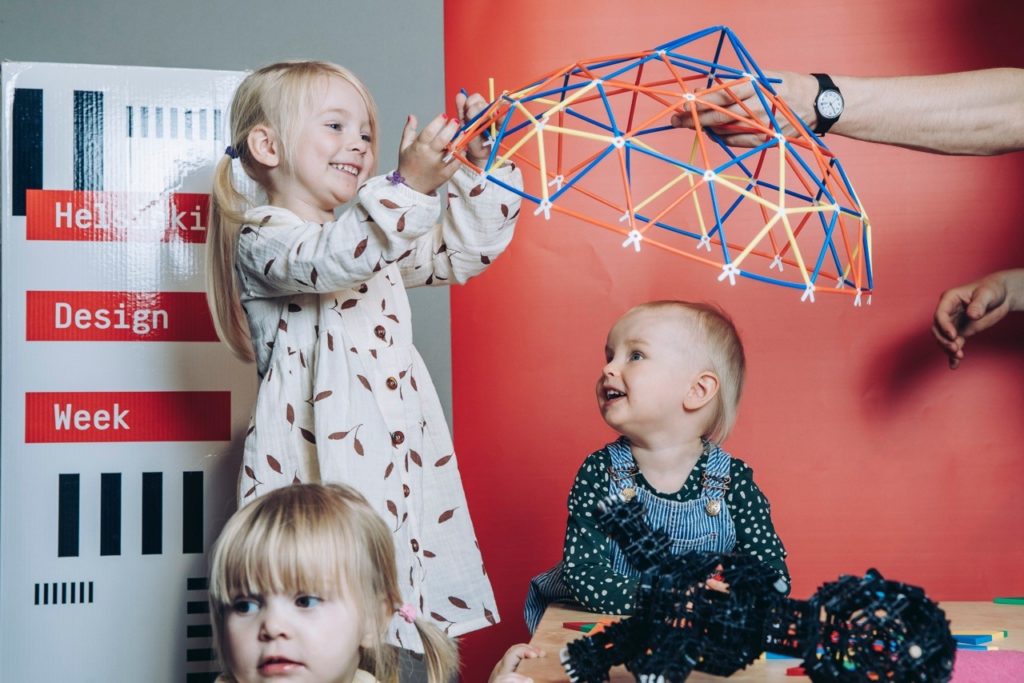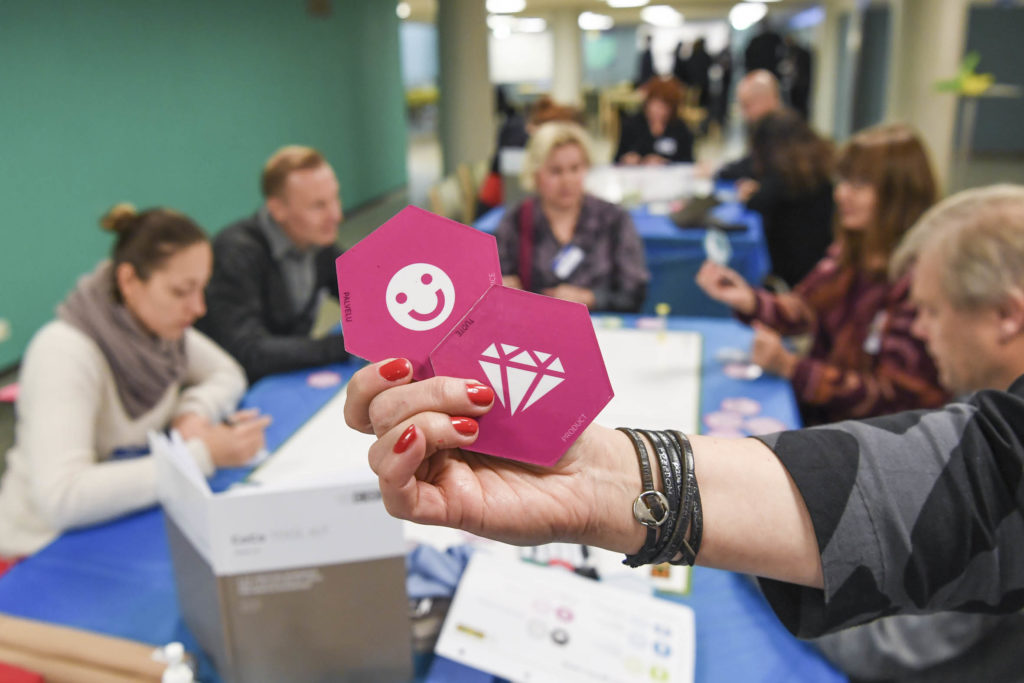Chief Design Officer, Helsinki Lab and the Helsinki design community
Helsinki’s design activities are led by the City’s Chief Design Officer Hanna Harris with the support of Helsinki Lab experts. The City of Helsinki cooperates widely with the Helsinki design and development network.
Helsinki Lab is an internal City of Helsinki design team, which promotes the use of design in the development of the City.
The Lab integrates design expertise, digitality and interaction into the development of the City.
The Lab coordinates and supports internal City of Helsinki design activities, uniting different members of the City organisation and external partners.
Helsinki Lab leads development projects shared by all parts of the City organisation, and it offers assistance and support to City design projects. For example, Helsinki Lab experts give advice on design services procurement and how to take the user perspective into consideration. The experts support the cultural change related to design activities. Helsinki Lab supports the skills and competencies of the development community as well as an expansion of the City’s design capabilities by organising events, by supporting networking and by developing the impact assessment of design activities.
In close cooperation with partners
Helsinki is home to a concentration of creative professionals as well as enterprises and educational institutions focusing on creative industries. The City of Helsinki conducts design activities in close cooperation with design professionals, design agencies and other design partners.
The City of Helsinki has signed a framework agreement on service design with eight providers. The annual number of projects carried out within the framework agreement averages 135.
The City’s annual design services procurement totals 3.5 million euros.
City of Helsinki design projects benefit from the City’s good cooperation with the Helsinki metropolitan area universities and educational institutions. For example, researchers and students at the Aalto University Department of Design conducted the first extensive survey of City of Helsinki design activities in 2019. The survey produced tools for evaluating the impact of design.
A key academic partner for the City of Helsinki is Urban Academy Urban Academy is a platform for the Cities of Helsinki, Espoo and Vantaa, for Aalto University and for the University of Helsinki to collaborate in research-based urban development. Urban Academy promotes interaction between urban research and urban development, and it supports multidisciplinary collaborations. The work of Urban Academy supports Helsinki’s design activities, for example, by providing research datasets to be used in the development of the City and its services.
Helsinki Design Week is one of the main partners of the City of Helsinki in making design visible, and the City of Helsinki is one of the main partners of this design festival organised annually in September. Helsinki Design Week, the largest design festival in the Nordic countries, explores many themes important for Helsinki and presents design on a broad basis both to professionals and to ordinary citizens.

International cooperation
Design is one of the focal areas in Helsinki’s international activities. Helsinki is internationally recognised as a city that makes innovative use of design, and Helsinki’s experiences and views are appreciated in the international arena.
Helsinki is active in international architecture and design networks.
The most important international design networks for Helsinki are UNESCO Creative Cities and its subnetwork Cities of Design as well as World Design Organisation.
Helsinki participates in the main international architecture and design forums and festivals. For example, Helsinki was the Guest City of Asia’s largest design festival Beijing Design Week 2021.
Helsinki also collaborates with international research institutes and organisations. Helsinki has been invited to join several programmes of Bloomberg Philanthropies of the United States to develop, for example, digital innovations and smart mobility together with top universities.
Helsinki explored the use of design in solving social problems in an innovation programme organised by Bloomberg Philanthropies and Harvard University. The goal of this programme was to strengthen the participants’ proficiency in the principles and methods of user-oriented service development in city organisations. Helsinki was the first European city to participate in this programme.
Photos: Kimmo Brandt, Aleksi Poutanen

